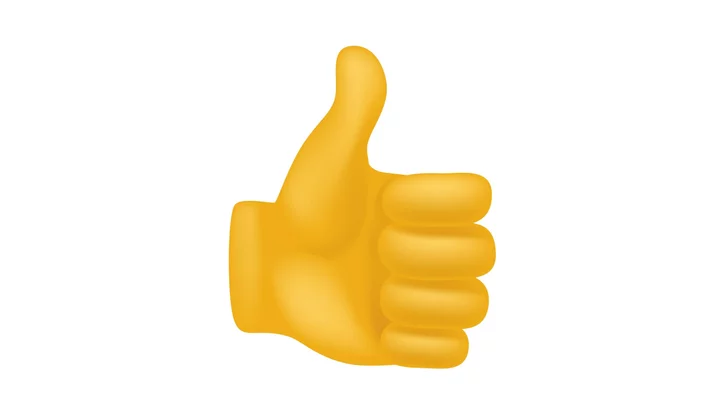Those emojis you send friends could potentially be used against (or for) you in a court of law, at least in Canada.
A Canadian judge ruled this week that the “thumbs up” emoji was just as valid as a signature in a case, citing the need for the courts to adapt to the “new reality” of how people currently communicate with one another.
The case in question took place in the province of Saskatchewan and has to do with an unfulfilled contract for flax between a farmer and a buyer. According to The Guardian, the buyer texted the farmer a picture of a contract requesting that the flax be delivered in November at a rate of $17 Canadian ($12.73 US) per bushel. In that same text, he asked for the farmer to "please confirm the Flax contract” to which the farmer responded with a thumbs-up emoji.
Long story short, when November came the farmer did not deliver the flax, and the price of the crop had gone up. The buyer claimed the thumbs-up emoji represented the farmer’s agreement to the terms of the contract and sued, and in this case, won.
According to the farmer’s lawyer, the farmer sent the emoji as a way of simply acknowledging he received the contract, not as an agreement to its terms.
The judge; however, saw the situation differently.
Citing the Dictionary.com definition of the emoji “The thumbs-up emoji is used to express assent, approval, or encouragement in digital communications, especially in Western cultures,” the judge sided with the flax buyer.
The defense argued that siding with the buyer would open up future cases where the country would be required to interpret the meaning of other emojis; however, the judge was not swayed.
“This court readily acknowledges that a ? emoji is a non-traditional means to ‘sign’ a document but nevertheless under these circumstances this was a valid way to convey the two purposes of a ‘signature’,” he wrote in a statement to the court. “I, therefore, find that under these circumstances that the provisions of s. 6 of the [Sale of Goods Act] have been met and the flax contract is therefore enforceable. There is no issue in this regard that requires a trial.”
Worth noting, the buyer and farmer had a long-standing relationship where the farmer had previously responded to purchase agreements with things like “Yup” or “Looks good,” so thinking a thumbs-up emoji was an agreement to the contract isn’t exactly as far-fetched as it may seem.
“This appears to be the new reality in Canadian society and courts will have to be ready to meet the new challenges that may arise from the use of emojis and the like,” said the judge, who ordered the farmer to pay C$82,000 ($61,442) for the unfulfilled contract.
Emojis and emoticons have already come up in several court cases in the United States and The American Bar Association is also looking into how they might be interpreted within the US court system.









